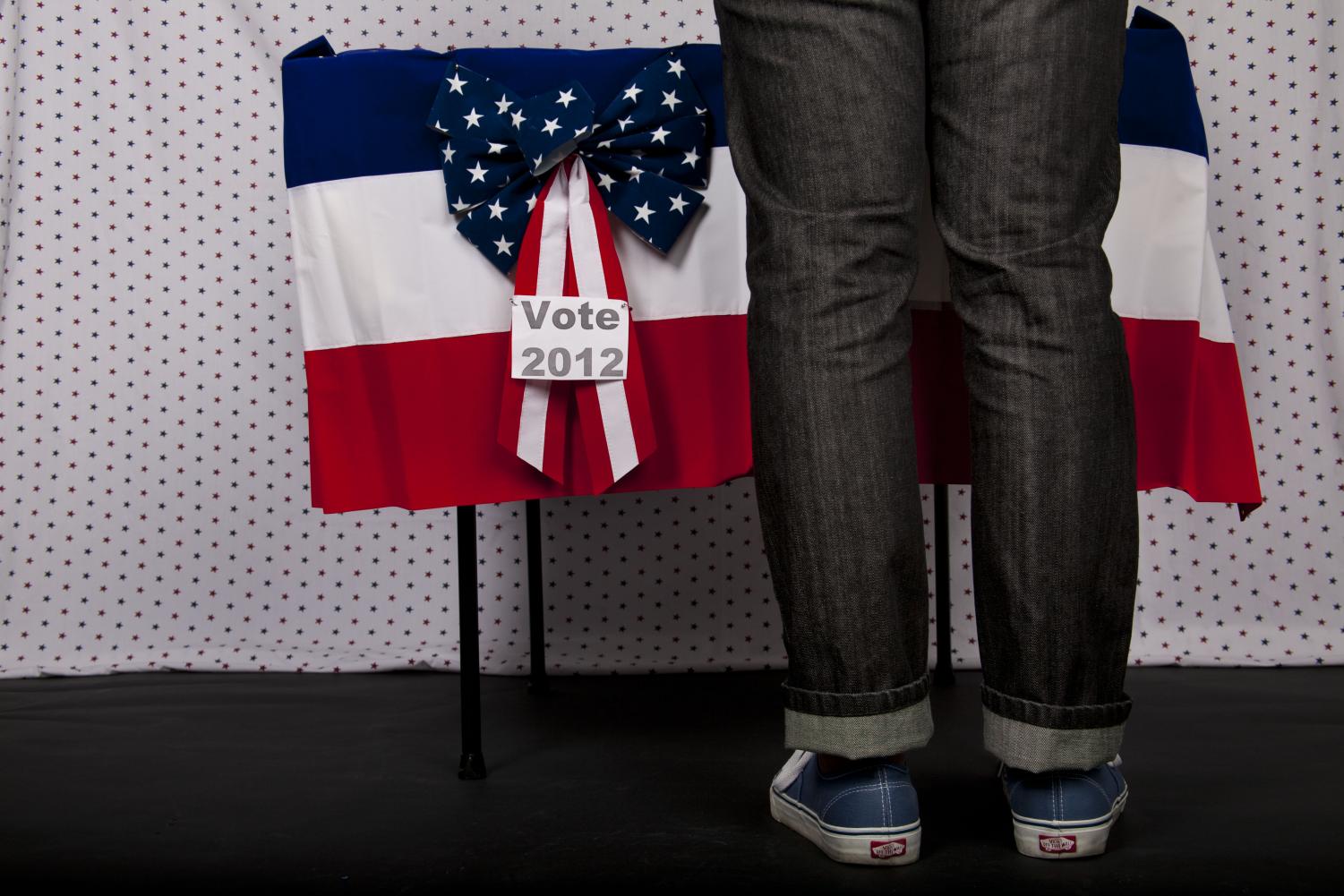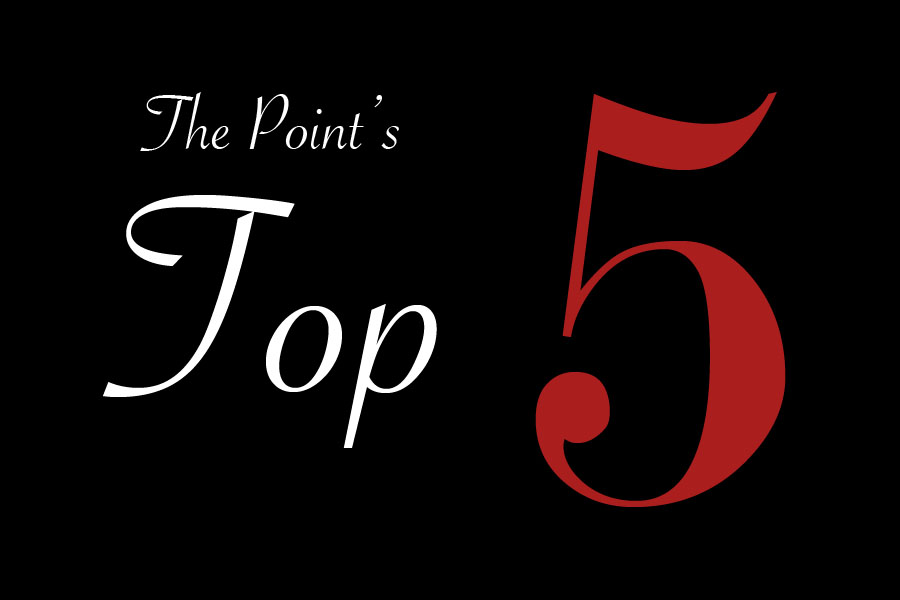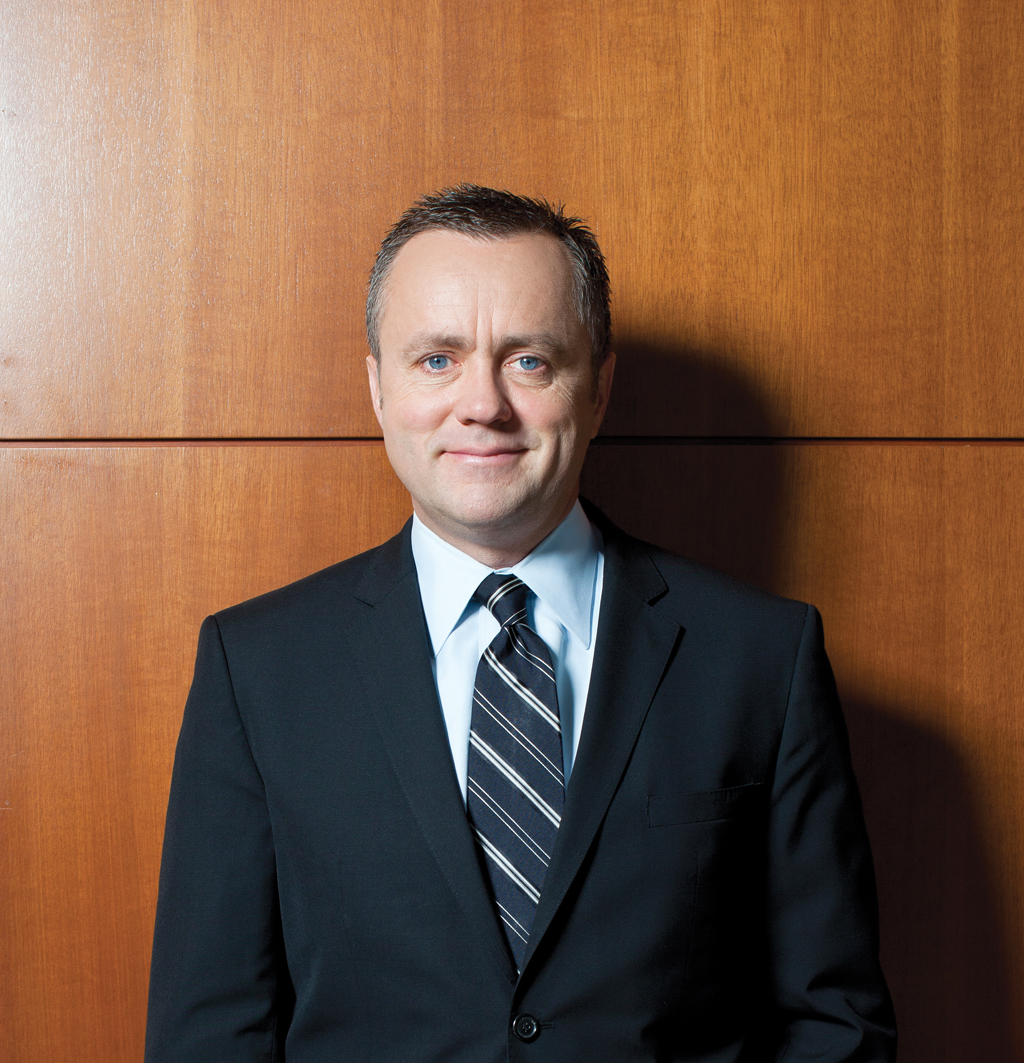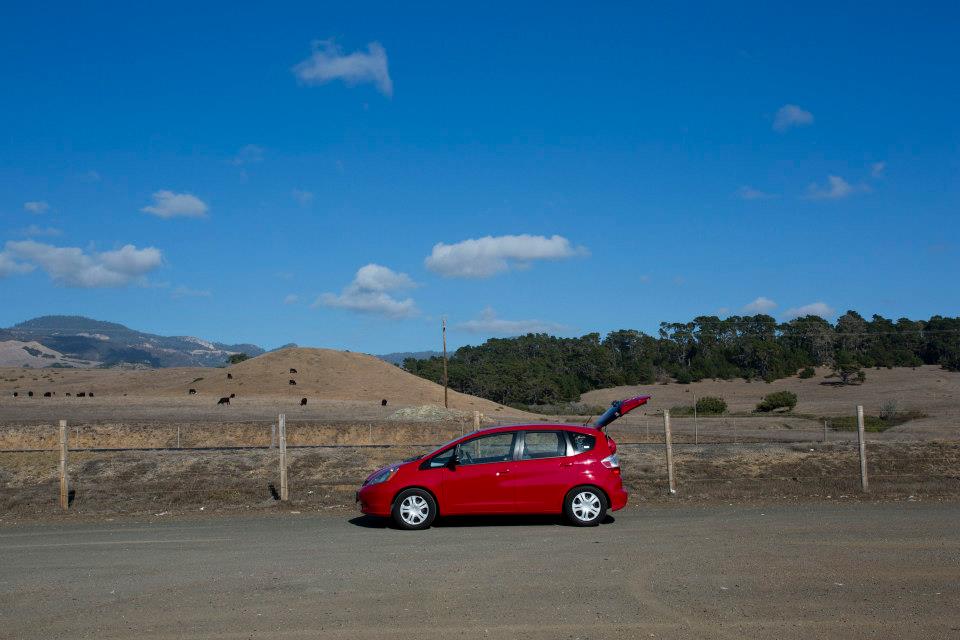Written by Ethan Froelich
Today a conversation about politics in Christian circles can get heated very quickly. Mention “Obamacare,” or the economy, and opinions will fly, from both left and right. From the pulpit, and the front of many Biola classrooms, preachers and professors talk about the latest political debacle, or the new policy that, if enacted, that could threaten Christianity.
In the wake of a GOP primary in which the Republican election has been a near toss-up between three, four, sometimes five candidates, it is important to ask the question — “what kind of candidate should I, as a Christian be voting for?”
John Mark Reynolds’ family has been Republican since 1861 when Abraham Lincoln was president, a fact that he is proud of. Reynolds, founder of Biola’s Torrey Honors Institute, is also a proud supporter of GOP candidate Mitt Romney. “I am a Romney guy and have been for the last four years,” Reynolds declares.
“Romney is going to win the primary and then he is going to win the election,” predicts Reynolds rather assuredly.
“Wrong, wrong, wrong!” comes the joking response from Reynolds’ primary political adversary at Biola, and good friend, professor Dave Peters. As a Democrat, Peters has long supported Obama and sees Obama as the one who will go the distance for the next four years. “I have been saying it for six months — six months!” says Peters, “Obama is going to be the next president.”
Both Reynolds and Peters vote based on what they feel their faith dictates. Even though they both believe they are right, they agree that there is room for debate.
Faith Impacts Presidential Campaign Trail
The Republican debates of 2011 and 2012 showed just how much a candidate’s faith could impact one’s campaign. During the first Republican debate in Iowa on Dec. 10 of last year, Michelle Bachman was asked whether she would be submissive to her husband if she became president, in light of her evangelical faith. Newt Gingrich faced a barrage of questions about his multiple marriages as a former Protestant Christian and now as a Catholic. And Rick Santorum’s platform was run on the fact that he was a conservative Catholic.
Perhaps the person that faces the most scrutiny now is Mormon Mitt Romney. After winning the Republican primary, he faces a nation in which, according to a 2011 Gallup poll, 78 percent of adults identify with some sort of Christian religion. Only 1.9 percent of those surveyed in the poll said their religious preference was Mormonism.
At Biola, faith has a significant impact on the way students vote. In a survey of 84 Biola undergraduates conducted by the Point Magazine on how faith impacts students’ political decisions, 63 percent of respondents said that they were more likely to vote for a candidate if he or she is a Christian.
The survey showed that while 63 percent of students say their vote is impacted by a candidate’s faith, many fell under the category of not knowing whether a candidate was a Christian or not. Only half of the students in our survey knew that Romney was a Mormon (55 percent) and more people thought Obama was not a Christian (37 percent) than those who did (30 percent). It goes without saying that one of the first steps towards faith-driven political activism is becoming knowledgeable about the candidates.
Becoming Faithfully Informed
Politics happens to you, whether you take part in it or not,” says junior political science major Shaefer Bagwell. Voting for the next U.S. president is complicated, and is one of the many hurdles that Biola students must face as they become independent. In our survey, 66 percent of respondents said they did not vote in the previous election, but 87 percent said they would be voting in the next election. The Biola undergraduate community and Christian colleges in general, have the potential to be a training ground for informed voters.
Biola is a school where Christian activism for many causes is visible. As students, we wear TOMS shoes that give one pair to a child in need, we go on mission trips, and many of us rally to raise money for students who find themselves struggling to afford Biola. Yet there seems to be hardly any Biola involvement when it comes to national politics. There are no signs urging people to vote in the upcoming elections, no campus-wide petitions written to national leaders urging them to change certain policies — it seems that Biola is a political dead zone.
Recently Laura Cook, a sophomore visual journalism major and A.S. Vice President for the upcoming 2012-2013 school year, went up to Sacramento with other Biola students to protest the state’s decision to cut Cal Grant funding. Unlike the trip she took up to Sacramento, Cook points out, there are seemingly no students on campus who care to be involved in political activism. Cook says that much of her reluctance to get involved with national politics is due to the fact that her family has many strong opinions.
“I avoid debates, and I actually loathe them, probably because my family gets so riled up about them,” says Cook.
Thinking Independently
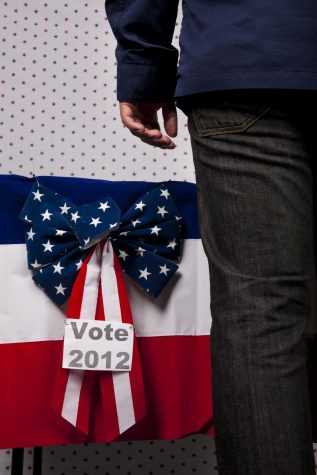
“Tomoko Taguchi, a junior visual journalism major and international student from Japan, has never been interested in politics wherever she has been, but says her theme this year is “thinking critically about things.” Taguchi says, “just because I am not a U.S. citizen, that doesn’t mean U.S. politics aren’t relevant for me.” One of the places of safety for students is to adhere to what their parents believe, and adopt the same political affiliation.
As a political science major, Bagwell sees this all the time. “People often parrot the views of their parents,” says Bagwell, who states that most people in his classes are Republican. “I would say eight out of ten people are conservatives,” says Bagwell, “with the other two people being an independent and a liberal democrat.”
Peters served six one-year terms as mayor of La Mirada, and spent a total of 25 years on the La Mirada City Council. “The political incubator is the family, the home; that is the number one influence on the position that we ultimately take in politics,” says Peters. Andrew Entzminger, a senior journalism major and president of the Biola Democrat Club says, “I think that the majority of Biola students vote the way their parents told them to, not that that [always] is a bad thing…but it can make them a lot less informed.”
Biola’s Conservative Tradition
An article written by the LA Times in October of 2008 highlighted the fact that Biola University has long been a “Republican citadel” and that the La Mirada precinct delivered 93 percent of its vote to George W. Bush back in 2004.
Traditionally, Christians have tended to be overwhelmingly Republican with many Biola students following this trend. Statistics in our survey show that 55 percent of Biolans are Republicans with the nearest other political affiliation being the Independent party at 23 percent and the other 22 percent being either Libertarian, “Other”, Democrat, or not interested in any political affiliation. Only one respondent says he or she is a Democrat.
Reynolds and Peters agree that in the 2008 elections, they saw most of their students support George W. Bush. Reynolds asserts that this is not so much an indication of thoughtful involvement in politics as it is a sign that Biola students follow the trends of their parents.
Voting is Biblical
Not one to openly state his own political affiliation, Peters does promote acting on one’s biblical duty to Caesar by voting, as shown in Romans 13:1. “In a democracy the most minimal level of rendering to Caesar what is Caesar’s is to vote,” says Peters, “If you don’t vote then I think you are missing out.” Statistically, 18-24 year olds have the lowest percentage of voter turnout of any age bracket.
According to the U.S. Census Bureau, in the 2008 elections 59 percent of 18-24 year olds were registered to vote, but only 49 percent actually voted. In order for Biola students to break from this trend, Reynolds advocates deciding what one’s values are and then picking a party that fits those values.
“Christians are called to love our neighbors and love our family units,” says Reynolds, “voting becomes one way to show love to my nation.”
Many students who have never voted are trying to figure out what political affiliation – Republican, Democrat, Independent, etc. – works best with their Christian faith. Even those who have voted before and are well-versed in politics tend to vote the way they believe their faith dictates.
“I try, when I am thinking about my stance on an issue, to think of what is the most logical viewpoint, what is the most compassionate viewpoint, what is the most Christ-like viewpoint,” says Bagwell.
Entzminger says, “Everything about my political ideals is checked by my faith.” As a Catholic and member of the Democratic Party, Entzminger believes that many people opt out of political involvement by not aligning themselves with either the Republican or Democrat Party.
Examining the Choices
Entzminger stresses that America is such a two-party government that having the political affiliation as an Independent, Libertarian or any other political affiliation is simply not effective when it comes to making one’s vote count. Reynolds as a Republican goes a step further when he says that Independents are basically just Republicans or Democrats who don’t want to declare themselves as such.
On the topic of what irks Reynolds about Biola students and the way they think about politics, Reynolds said, “I meet two types of students that irritate me: they either think all Democrats are good, or all Republicans are good, and they are closed-minded. Mostly I meet students who won’t commit to anything because they think that is being open-minded.”
Last semester the Chimes published an opinions article by Mark Nesbitt, a freshman political science minor, on whether Christians could be Democrats, to which Bagwell wrote a response. Both articles got a great deal of attention from the Biola community as a whole and opened up the discussion as to just how compatible both views are with Christianity.
Nesbitt and Bagwell both had valid points against each other’s views, but neither seemed to convince the other. While Bagwell is passionate about his views as a Democrat, and Nesbitt as a Republican, Bagwell says that he and Nesbitt are able to remain co-workers as they write for the Chimes’ “Opposing Viewpoint” opinion section, because they both believe in Christ.
Agreeing to Disagree — Placing Christ and Community at the Center
There is a point in politics where both sides have to call a truce. With politics, arguments can last days, weeks, or even span generations. Rather than trying to convert everyone who believes differently, it is important to realize that Christians can have political differences. The ability to discuss politics without one-sided partisan discourse is important, but what is most important is the ability to put faith above politics, community above trying to always prove one’s view.
Taguchi observes, “People who are willing to talk about politics seem to be very opinionated and very set in what they believe in and not very open to seeing things in different ways.” Cook believes that most students need to have a mindset of discussion, not of debate. “Right now it doesn’t seem like the world outside of the ‘Biola bubble’ affects us, but we need to be informed so that when we get out we can be impactful,” says Cook.
In the end, “The parties don’t disagree that much,” Reynolds says, and advises looking at a country that has a Socialist, Communist and Fascist political party to give one a real sense of what differences could exist among political parties in the U.S. “The Pope is right about this: any form of government Christians can live with, if it does justice,” says Reynolds.
When thinking about politics one must consider if the person one is electing will practically bring out change in a meaningful way. Reynolds believes in smaller government because he believes that it leaves Christians alone to spread the Gospel without being intrusive. On the other end of the spectrum are those like Peters, Bagwell and Entzminger, who all believe they are applying their faith to politics properly by being Democrats. Whether one leans right or left, or is decidedly dead center, as a Christian one’s political position should not cause divisions, but instead should unify the people around you.
Remaining Friends Despite Politics
During their interviews, both Peters and Reynolds declare the other is wrong in a loving, friendly way. Reynolds believes his Republican stance is the correct one and Peters is convinced that once people look thoroughly at what they believe as a Christian, they should become Democrats. Yet this does not put Peters and Reynolds at odds.
“I always say: I am here to educate, not indoctrinate,” says Peters, who tells students to “follow God’s leading in your life.” Both Reynolds and Peters remain friends who discuss politics on a weekly basis in a serious and knowledgeable way.
“At the end of the day, politics should not divide, but should unite Christians,” says Reynolds, who still owes Peters a dinner after losing a bet that McCain would become the 44th president.
